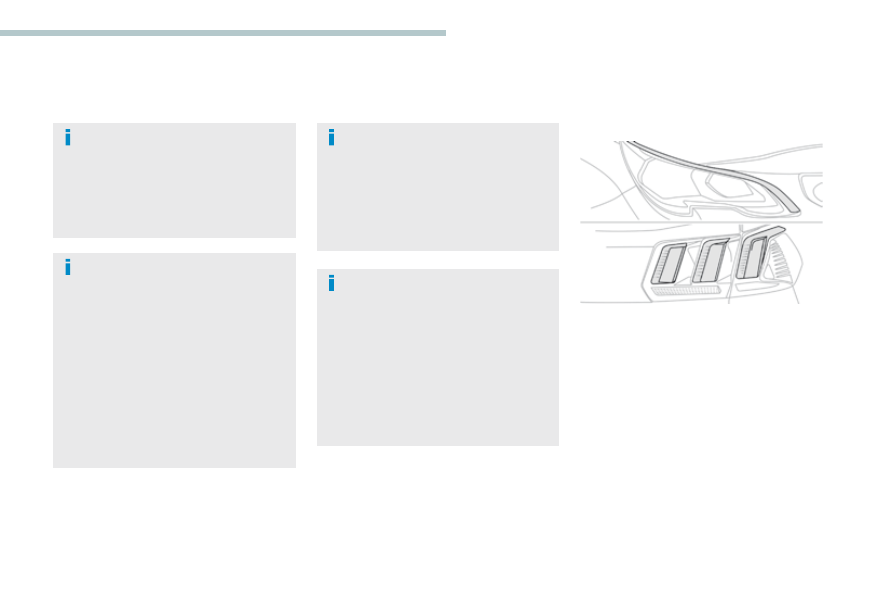Peugeot 3008 (2017 year). Manual - part 10

4
Lighting and visibility
143
3008-2_en_Chap04_eclairage-et-visibilite_ed01-2016
Switching on the lighting
after switching off the
ignition
To reactivate the lighting control stalk,
turn the ring A to position "0" - lighting
off, then to the position of your choice.
When the driver's door is opened, a
temporary audible signal warns you that
the vehicle's lighting is on.
They switch off automatically after a
period which depends on the state of
charge of the battery (entry to energy
economy mode).
Daytime running lamps /
Sidelamps
The light-emitting diodes (LEDs) in these
lamps, front and rear, come on automatically
when the engine is started.
They provide the following functions:
-
Daytime running lamps (lighting control
stalk at position "0" or "AUTO" with
adequate light level).
-
Sidelamps (lighting control stalk at
position "AUTO" with a low ambient light
level or "Sidelamps only" or "Main or
dipped beam headlamps").
In some weather conditions (e.g. low
temperature or humidity), the presence
of misting on the internal surface of the
glass of the headlamps and rear lamps
is normal; it disappears after the lamps
have been on for a few minutes.
Travelling abroad
If using your vehicle in a country that
drives on the other side of the road, the
headlamps must be adjusted to avoid
dazzling on-coming drivers.
Contact a PEUGEOT dealer or a
qualified workshop.
Switching off the lighting
when switching off the ignition
When the ignition is switched off, all of the
lamps switch off immediately, except for the
dipped beam headlamps if automatic guide-
me-home lighting is activated.